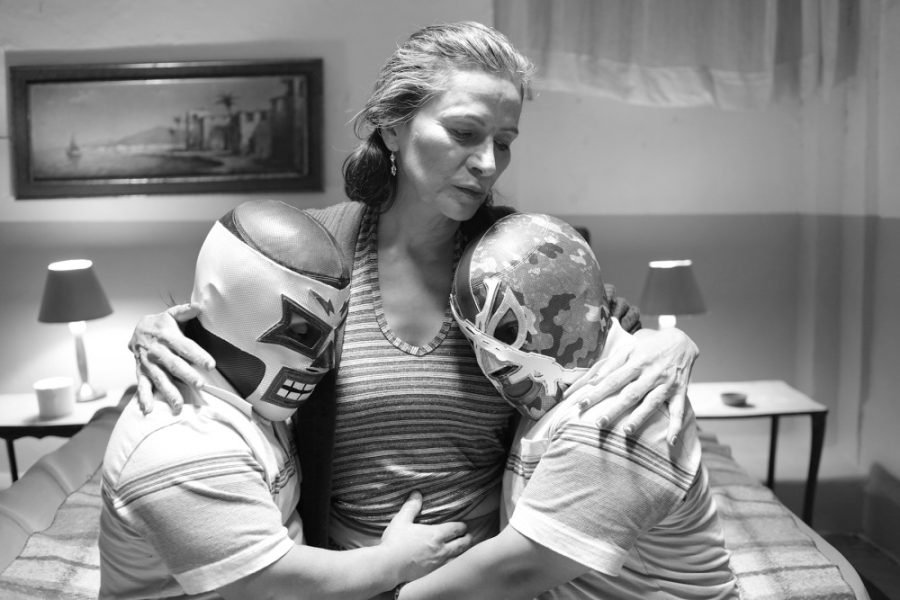Film lovers of all ages and cultures unite. Tucson Cine Mexico is bringing some of our southern neighbor’s best contemporary films to town.
Tucson Cine Mexico has been a staple of the city’s film festival lineup since 2004 and is the longest-running showcase of contemporary Mexican films in the country.
The festival endeavors to bring incredible Mexican cinema to an enthusiastic Tucson audience, and the festival’s co-directors have carefully selected this year’s selection from countless entries.
“We are very cognizant that we are programming for the community, so we want to show the diversity of Mexican cinema that is being made,” said Vicky Westover, Tucson Cine Mexico co-director and director for the Hanson Film Institute. “[The films] are all really very different and everybody can enjoy all of them, but I think certain segments of the population will like certain films.”
RELATED: Tucson’s Jewish community celebrates cultural diversity with international film festival
Westover founded the festival 14 years ago through the Hanson Film Institute and has been the director ever since. This year, Carlos Gutiérrez will be joining Westover and making his co-directing debut after serving as festival co-programmer for several years. Gutiérrez runs Cinema Tropical, an organization that promotes Latin American cinema in the U.S. and is a partner in Tucson Cine Mexico.

This year’s festival opens Wednesday night with a talk from documentarian and experimental filmmaker María José Cuevas. Cuevas is the filmmaker behind “Bellas de Noche,” a documentary included in this year’s festival that explores the lives of 1970s and ‘80s Mexico City showgirls.
The film is the first feature-length for the director and has received several awards from festivals around the world.
Cuevas’ talk will focus on the place of showgirls during a time of economic crisis, women’s liberation and how that history has affected the medium today.
Cuevas will also be presenting various magazines and film excerpts she discovered during the 10 years of research that went into the creation of her documentary.
“Bellas de Noche” will screen on Friday with Cuevas in attendance.
“I think it’s a fascinating look into fame and post-fame life,” said Kerryn Negus, the assistant director of Hanson Film Institute. “It centers around these five women who had achieved stratospheric levels of national fame and what happened to them after their fame.”
RELATED: In the spotlight: Cera Naccarato talks “Chicago Justice” part and acting
Following the documentary will be “Un Monstruo de Mil Cabezas (A Monster with a Thousand Heads).” This thrilling drama follows a woman’s desperate attempts to save her husband from terminal cancer after being denied assistance from her insurance company.

Directed by Rodrigo Plá, the film is a gripping thriller that will leave audiences on the edge of their seat, while also commenting on an issue at the forefront of today’s tumultuous political landscape.
“CarmÍn Tropical” is another film that addresses contemporary issues but does so through the story of a muxe, the Mexican word for a person who is assigned male at birth but who identifies as either female or neither male nor female.
Mabel, the protagonist of the film, is a Oaxacan woman who returns to her hometown to find the person responsible for her friend Daniela’s murder. Confronted with homophobia, corruption and intolerance along the way, Mabel embarks on this journey determined to find Daniela’s killer.
Westover came across “CarmÍn Tropical” when it was first released in 2014, but couldn’t include it in the year’s festival lineup due to budget constraints.
“I was not able to forget ‘CarmÍn Tropical,’” Westover said. “When it came time to program for this year, even though we had so many to pick from that were more recent, it had made such a strong impression on me that we decided to include it.”
The second film showing Saturday night is “La calle de la amargura (Bleak Street),” a black and white drama based on a shocking true crime story of prostitution, mini-luchadores and murder. The darkly comedic melodrama is directed by the well-known and award-winning Mexican filmmaker Arturo Ripstein.
Sunday’s matinee showing of “El Charro de Toluquilla” will close out this year’s festival. The documentary follows Jaime GarcÍa, an HIV-positive mariachi singer with quite a personality.
“All good documentaries begin with a really compelling, charismatic character,” Negus said. “’El Charro de Toluquilla’ is playful and sweet; it’s a fabulously interesting documentary.”
All Tucson Cine Mexico showings will take place at Harkins Tucson Spectrum 18 theater, and admission is free. Those interested in attending should visit the official festival website to reserve their tickets and plan to arrive 30 minutes early to screenings as seats are not guaranteed.
Follow Victoria Pereira on Twitter









